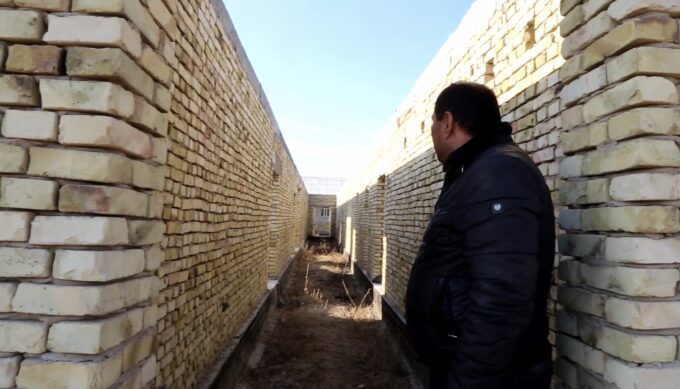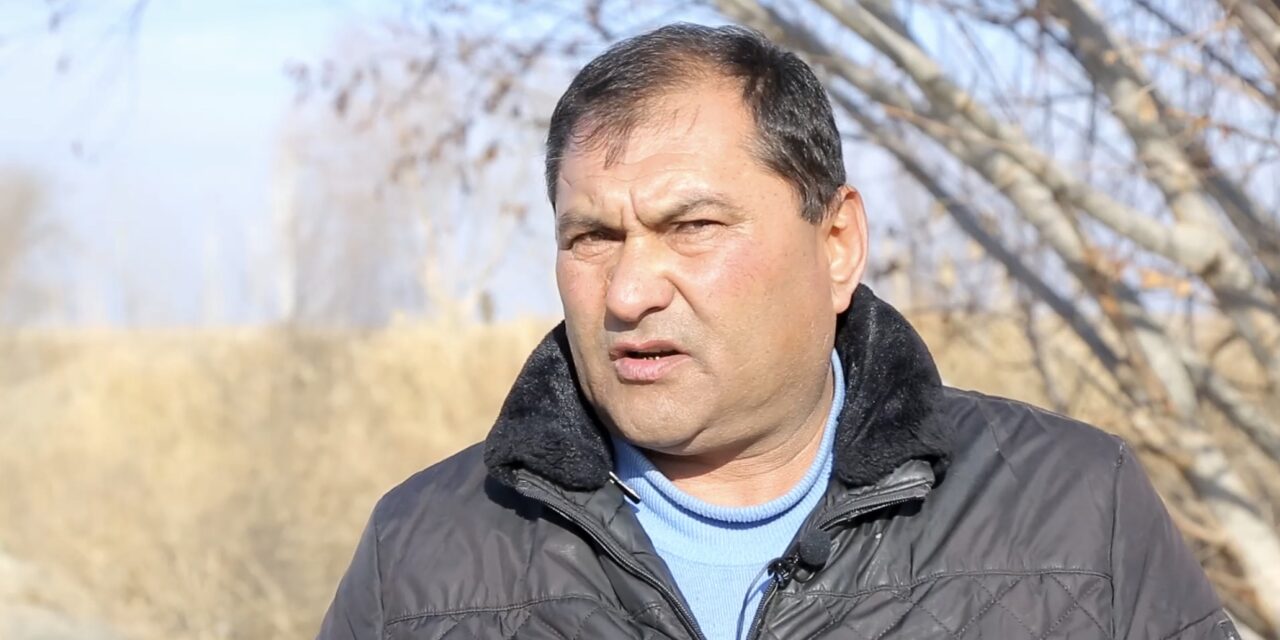Cooperatives are being shut down through arbitrary application of the law and the determination of officials to prevent them from operating
Since the privatization of Uzbekistan’s cotton sector began in 2019, farmers throughout the country have repeatedly complained of illegal land confiscations and exploitative contracts with private cotton clusters. Blank contracts with no minimum price for their cotton, inflated prices for fuel and fertilizers, failure to pay for delivered cotton, along with unrealistically high production targets, which can result in land confiscation if unfulfilled, have plunged thousands of farmers into debt and despair.
In response, cotton farmers in a number of regions have begun to form cooperatives in an effort to sidestep the monopoly of cotton clusters. Cotton cooperatives are a new phenomenon for Uzbekistan, which began to appear after the end of the state order for cotton production in 2020. A new draft law on agricultural cooperatives, which was developed with the help of experts from the German Federal Office of Agriculture, has reportedly been submitted to the Cabinet of Ministers of Uzbekistan for approval.
However, government officials are finding ways of stifling these often successful, independent farms which receive no government subsidies, in contrast to privately operated cotton clusters, many of which are failing and accruing debts. Local officials, who appear to be acting on behalf of clusters, are effectively obstructing cooperatives from operating, and in some cases even seizing their cotton and delivering it to clusters. Independent farming outside of the cluster system is not a welcome development in the New Uzbekistan.
Khonka Gold Fiber Cooperative, Khorezm region
Uzbek Forum has documented numerous cases of obstruction by government officials to the operation of cooperatives and conducted interviews with dozens of farmers. The case of Khonka Gold Fiber cooperative in Khorezm region demonstrates the impartiality of the courts and the inexplicable motivation of government officials to prevent cooperatives from operating.
In December 2022, the Khonka Gold Fiber cooperative celebrated the return of 3.5 tons of cotton that had been illegally seized by officials two weeks before as it was being delivered to a cotton ginnery in a neighbouring district. The cooperative was established in January 2022 by three farms to grow cotton and produce fibre and yarn. The entire 2022 cotton crop was fully financed with the farmers’ own funds, in contrast to private cotton clusters that receive generous subsidies from the state.
Shokir Hujaniyazov, founder and head of the Khonka Gold Fiber cooperative, filed a complaint relating to the seizure of the cotton to the prosecutor’s office who referred it to the administrative court. On December 23, 2022, the court imposed a fine of $400 on an official from the Agro-Inspectorate, a government body charged with overseeing the agriculture sector, who had seized the truckloads of cotton. The official was found guilty of ‘violating the right to private property.’
It appeared that justice had been served and the cooperative could continue its activities. However, the victory of the farmers was foreshadowed by a lawsuit that had been filed in the economic court in Urgench city by the Agro-Inspectorate on December 6, 2022, demanding the liquidation of the Khonka Gold Fiber cooperative. The Agro-Inspectorate claimed that according to the presidential decree № 4633, adopted in March 2020, farmers’ cooperatives cannot exist in the same districts where cotton clusters have been established. Thus, the Agro-Inspectorate argued, Khonka Gold Fiber cooperative therefore had to be liquidated as the Khorezm Tex cotton cluster also operated in Khonka district.
The court found in favour of the Agro-Inspectorate despite the fact that there is nothing in the presidential decree that explicitly states that cooperatives may not operate in the same district where clusters operate. Indeed, this presidential decree was of historic importance in that it legitimized the establishment of cooperatives. Furthermore, under Uzbek law, where decrees conflict with existing law, the applicable law takes precedence. The claim of the Agro-Inspectorate violates Article 25 of the Law On Farms, which states that “Farms can voluntarily unite, join unions and other associations for production, procurement, processing and marketing of products, logistics, construction, technical, water, veterinary, agrochemical, advisory and other types of services”, is therefore not admissible.
The Agro-Inspectorate was not the only party with an interest in shutting down the Khonka Gold Fiber cooperative. In November 2022, the economic court in Urgench city upheld a lawsuit filed by the hokimiyat (local governing administration) of the Khonka district to terminate Shokir Hujaniyazov’s land lease agreement which he had concluded in 2019 for a period of 49 years.
This court decision had far-reaching consequences for the fledgling cooperative because it provided the grounds for the Agro-Inspectorate to subsequently claim that Khonka Gold Fiber was no longer composed of three farms which is the necessary legal basis for creating a cooperative. The Agro-Inspectorate could hence argue that since the land lease of one of the three founders had been terminated, the cooperative should therefore be liquidated.
This court decision too is a clear violation of the law. According to an expert on agriculture in Uzbekistan, the termination of a land lease and the liquidation of a farm are two separate processes. As a farm usually engages in a variety of agricultural activities, the farm itself is not automatically liquidated when the land lease agreement is terminated. Just like any other business, the farm can decide to conduct its business elsewhere. Nonetheless, the court ruled that the Hujaniyazov’s farm should be liquidated on the basis that his land lease agreement was terminated.
The Agro-Inspectorate even went further and claimed that the cotton production contracts with cooperative members were not registered with the state Department of Agriculture. Again, there is no legal basis for this complaint. Prior to privatization, contracts for cotton production between farmers and the state had to be registered with the Department of Agriculture, a logical arrangement since the state gave low interest loans to farmers. However, since privatization of the cotton sector, private cotton clusters, and not the state, now conclude contracts with farmers. In the case of cooperatives, contracts are concluded between farmers and the cooperative.
Nonetheless, officials still demand that these contracts between business entities continue to be registered with the Department of Agriculture, insisting that if there is no state registration, then the contracts are invalid. The fact is that businesses that have no state involvement are not required to register with the state. And still, the Agro-Inspectorate was able to convince the court that the absence of an unnecessary registration of the cooperative’s contract with the Department of Agriculture was legitimate grounds for terminating the land lease agreement, thus providing another convenient obstacle to the functioning of Khonka Gold Fiber cooperative.
Efforts to shut down the Khonka Gold Fiber cooperative and harass Huzhaniyazov were concerted and persistent. During 2022, the hokimiyat filed two other lawsuits in an attempt to terminate Hujaniyazov’s land lease agreement.
Huzhaniyazov says his problems with the hokimiyat began in the spring of 2022, when the district hokim, without any legal right, demanded that he supply the state with 40 tons of wheat in addition to the production quota in his contract.
In April 2022, the economic court in Urgench city denied the hokimiyat’s first lawsuit for preliminary termination of the land lease on the grounds that the hokimiyat had failed to provide evidence to support the claim of Huzhaniyazov’s poor cotton production. In addition, the court admonished the hokim’s complaint that the farm was not growing other agricultural products, because under his land lease agreement, the farmer was not obliged to plant produce at the request of the hokimiyat.
However, the hokimiyat’s second lawsuit on November 24, 2022, to terminate the farm’s multi-year land lease agreement was successful, based on the allegation that Huzhaniyazov had failed to fulfill the obligations of his contract with Khorezm Tex cluster for three consecutive years. In addition, the hokimiyat accused the farmer of “inappropriate” and “unauthorized” use of land, namely that the farmer had planted an extra seven hectares of wheat and six hectares of rice in 2022 without approval.
“Inappropriate” and “unauthorized” use of land is a common reason given by hokimiyats when they want to exert pressure on farmers by threatening to terminate their land leases. Although farms in Uzbekistan are considered “independent economic entities,” the so-called allocation system remains anchored in law and requires farmers to cultivate what the state wants and not what is profitable for the farmer. Land lease agreements stipulate what agricultural products a farmer must grow on specific areas of land. However, access to water and other external forces can have a significant impact on the ability of farmers to achieve their production targets.
Hujaniyazov told Uzbek Forum that he failed to meet his production targets set by the Khorezm Tex cluster because of lack of access to water. The water shortage at Hujaniyazov’s farm was even confirmed by an inspection carried out by the Agro-Inspectorate in October 2022 and should therefore have resulted in a lower production target. Instead, Hujaniyazov’s production target remained unrealistically high, leaving him destined to fail the terms and conditions of his land lease.
Shokir Hujaniyazov intends to continue his fight for the survival of his farm and his cooperative and has submitted an appeal to the Supreme Court the demonstrable violations of Uzbek legislation.
On January 13, 2023, the Farmers’ Council sent a letter to the General Prosecutor’s Office requesting the postponement of tax payments for cotton farmers in response to forced seizures of tax debts by the tax office. The Council reported that some 30,000 farmers – the vast majority of cotton farmers – had not yet received full payment for the cotton they produced and delivered in 2022 and were therefore unable to pay their taxes.
At a time when many cotton clusters are struggling with financial insolvency, despite generous government subsidies, the determination of local authorities to crush the development of independent cooperatives is inexplicable and indefensible.





